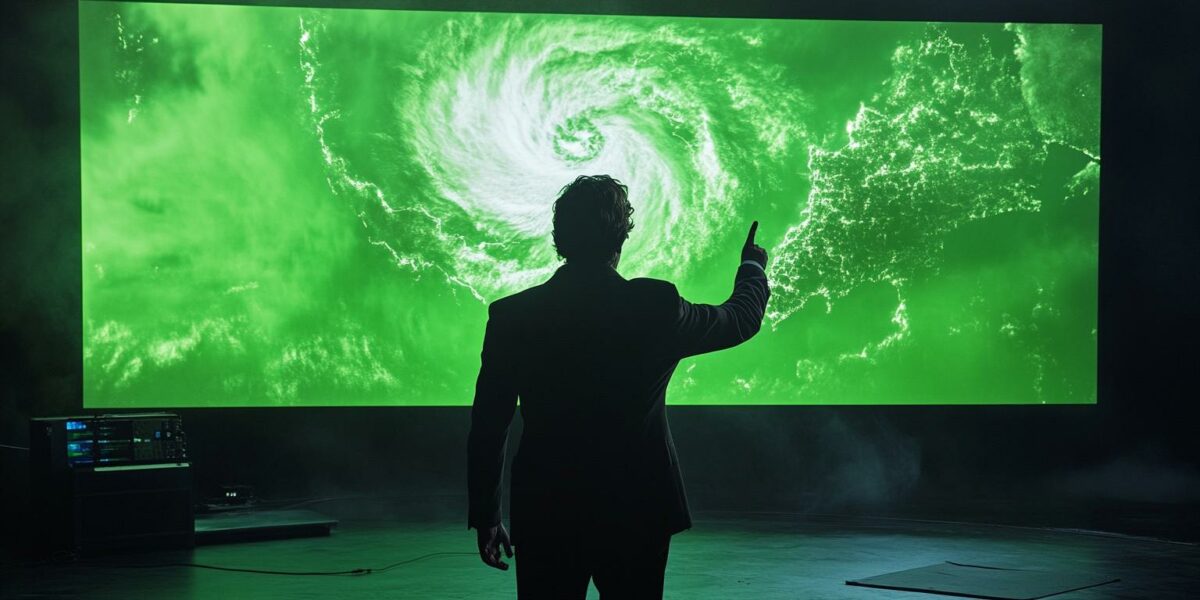The Climate Crisis Overlooked in Forecasts
TV forecasts often neglect to tie extreme weather to climate change. Britain is experiencing hotter, wetter, and stormier conditions, yet this context is missing from broadcasts. Last year marked the second warmest since 1884, raising questions about the role of media in climate awareness.
Prominent voices like Sunil Amrith emphasize the need for public understanding of climate challenges. He argues that comprehending the causes and consequences of climate change is vital for a sustainable future. The gap between scientific data and public knowledge remains a critical issue.
Extreme weather events have increased significantly in recent decades. Data from the Met Office highlights the rise in very hot days and extremely wet conditions, yet these alarming trends often go underreported in mainstream media.
Met Office presenter Alex Burkill explains that time constraints on TV limit discussions on climate change. The priority is immediate weather details, leaving little room for exploring broader environmental impacts, despite their growing relevance.
Challenges in Communicating Climate Change
Burkill notes that scientific rigor makes it challenging to attribute extreme weather directly to climate change during broadcasts. Historical weather patterns complicate this task, although changing climates undeniably increase extreme temperature and rainfall occurrences.
Andrew Charlton-Perez from Reading University highlights the difficulty in balancing meteorological explanations with public interest. Audiences seek immediate weather information, overshadowing vital climate discussions that require more attention.
Efforts to deepen public understanding involve detailed analyses available on platforms like the Met Office’s YouTube channel. However, these resources remain underutilized, limiting comprehensive climate education.
Key challenges include:
- Limited broadcast time for climate topics
- Complexity of scientifically attributing events to climate change
- Public preference for immediate weather forecasts
AI and the Future of Weather Forecasting
The integration of AI in weather forecasting is transforming the field. Major companies are developing AI technologies that enhance accuracy and efficiency. This evolution presents both opportunities and concerns for meteorologists.
Charlton-Perez points out the potential of AI to revolutionize forecasts, posing questions about the future of human forecasters. As AI systems become more sophisticated, their role in weather predictions continues to expand.
Burkill raises concerns about AI’s ability to modify forecasts, potentially leading to misinformation. This highlights the need for vigilance in preserving the integrity of weather data amidst technological advancements.
Despite advancements, human interaction remains crucial. Forecasters are wary about AI replacing their roles, emphasizing the value of personal connection in delivering weather updates.
Social Media’s Role in Climate Communication
Social media presents another hurdle for meteorologists promoting climate awareness. It enables rapid dissemination of both accurate information and misinformation. Burkill notes the challenge of addressing climate deniers who vehemently oppose the notion of human impact on weather patterns.
Negative comments on forecasts reflect a broader societal issue, where misinformation spreads faster than scientific facts. This highlights the need for effective communication strategies to combat climate misinformation.
Despite these challenges, meteorologists continue to strive for responsible climate communication. The battle against misinformation is ongoing, requiring persistent efforts to ensure accurate climate narratives reach the public.
Ultimately, the future of climate communication depends on balancing technological advancements with human insight, ensuring that the message of environmental urgency is delivered effectively.



Madison1
Is there a way to push for more climate-related content in TV weather forecasts? We need to raise awareness!
Emilia8
It’s shocking that media downplays such an important issue. Time for a change in how we get our weather news!
EmiliaEchoes0
Can AI really replace human forecasters? I love the personal touch they bring to weather updates.
ElizabethFatespeaker
Haha, maybe they think people will switch the channel if they talk climate change too much!
Victoria
I always thought there was more to the weather than just rain or shine. Thanks for confirming it!
JackTranquility
This was eye-opening! Thanks for shedding light on why climate change isn’t mentioned more in weather reports. 👍
olivia
Why do TV stations prioritize immediate forecasts over long-term climate trends? Seems like a huge oversight! 😕